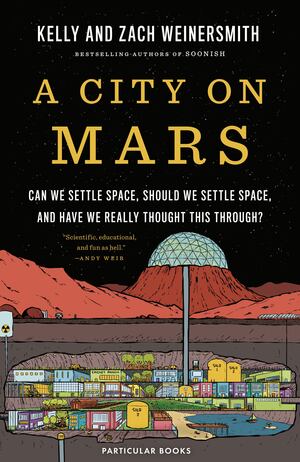Yes, Yes, and Definitely No.
4 stars
I love the Weinersmiths' style of writing and the comics. I laughed aloud several times as I listened to this book. The lighthearted tone of the book makes it easy to digest the heavy implications of the concepts.
I also really connected with what might be considered the negative conclusions regarding the large variety of systems that require consideration for colonizing space or any planet in our solar system.
I often find that while excited about ideas brought to me at work, I'm perceived as negative for asking the questions that need to be thought through before implementation in order to prevent catastrophe. This book validates that approach.
If you're looking for a thought-provoking, yet humorous, exploration of the challenges of colonizing Mars, this is the book for you.
I love the Weinersmiths' style of writing and the comics. I laughed aloud several times as I listened to this book. The lighthearted tone of the book makes it easy to digest the heavy implications of the concepts.
I also really connected with what might be considered the negative conclusions regarding the large variety of systems that require consideration for colonizing space or any planet in our solar system.
I often find that while excited about ideas brought to me at work, I'm perceived as negative for asking the questions that need to be thought through before implementation in order to prevent catastrophe. This book validates that approach.
If you're looking for a thought-provoking, yet humorous, exploration of the challenges of colonizing Mars, this is the book for you.




